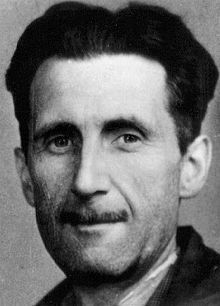Matt Rees's Blog - Posts Tagged "jonathan-franzen"
Franzen Bored and Gruelled
 Last week I enjoyed a humorous moment at the expense of Lisa Scottoline and the New York Times, which had described her writing schedule (supposedly from 9 a.m. until 11.30 p.m. and two novels a year) as “brutal.” I pointed out that if Scottoline was an ill-paid hooker, her schedule would be brutal. As a pretty well-remunerated writer––even one who works long hours––she’s still spending her days on an intellectual pool chair.
Last week I enjoyed a humorous moment at the expense of Lisa Scottoline and the New York Times, which had described her writing schedule (supposedly from 9 a.m. until 11.30 p.m. and two novels a year) as “brutal.” I pointed out that if Scottoline was an ill-paid hooker, her schedule would be brutal. As a pretty well-remunerated writer––even one who works long hours––she’s still spending her days on an intellectual pool chair.No sooner had I zapped those musings into the ether, to be read and appreciated (or abused) by virtual millions, than I was faced with another example of journalistic/authorial victimhood. In a review of the vastly overrated Jonathan Franzen’s new book of essays, poor Jonathan is described as heading off to the South Pacific to do some bird-watching and to recharge his batteries after “a grueling, boring book tour.”
Oh, sure, it’s tough traveling around talking about yourself and your work and your intellectual interests to people who take the time to buy your books and read them and are still interested enough in you to want to hear your other thoughts. Book tours are neither boring nor gruelling. Climbing K2 is grueling. Reading Jonathan Franzen is boring.
If your book tour is boring, that’s because you or your book or both are boring. If it’s grueling, it’s because you lack the meditative quality that allows you to simply be where you are, doing what you’re doing (and therefore you get “bored” because you’d rather be back at your desk where you’re a “pure” artist, than, say, talking to lovely people about your books in Hamburg with the impure intention of getting them to buy more books.)
The second amusing aspect of this (for there is, as pseudo-intellectual Franzen might write, a stereographic plurality of meanings here) is that the Times highlights an essay by Franzen in which he tells a graduating class at Kenyon College to get their noses out of their social networking devices and experience the world. Somehow a book tour doesn’t represent the real world to him. The South Pacific does. But the fast-disappearing bookshops of America are merely boring and grueling.
As a former journalist, I understand that there’s a degree of what I call cliché-habit involved in the word choice here. Schedules have to be “brutal” and book tours are “grueling,” just as Saddam Hussein was always the “Iraqi strongman,” until we found out he wasn’t.
But writers who go along with such descriptions will end up seeing their role with a negative, self-pitying slant. If you’re a writer who thinks your schedule is “brutal,” you’ll feel exhausted. You’ll write tired old shit with no spark to it. If you’re a writer who thinks book tours are “boring and grueling,” you’ll end up flouncing on your bed with a box of tissues and a tisane like any number of luvvies from Truman Capote onward, because the world is simply too much. You’ll never enjoy a book that truly grips you and tells you about the world in which life is lived; you’d rather be bird-watching in the South Pacific and writing stories of domestic life that are so pedestrian they find themselves described with that other most dreadful of clichés: “seminal.
Published on May 24, 2012 02:46
•
Tags:
book-tours, jonathan-franzen, reviews, writers, writing
Rees's Rules for Writers
 Newspapers and magazines frequently print lists of “rules for writers” penned by supposedly top-notch authors. No doubt this is a trend prompted by the inability of most people to write a clear sentence, let alone a novel. (The growth of texting and email may make us all better writers, of course. We’ll have to wait and see, won’t we….)
Newspapers and magazines frequently print lists of “rules for writers” penned by supposedly top-notch authors. No doubt this is a trend prompted by the inability of most people to write a clear sentence, let alone a novel. (The growth of texting and email may make us all better writers, of course. We’ll have to wait and see, won’t we….)My rules for writers are:
If asked to provide a list of rules for writers, don’t do it.
If you must (because your agent says it’s good for your name to appear in The Guardian), then try not to be cute.
Reveal no stupid prejudices.
Write rules for writers, rather than rules for people who CAN’T write.
Try to have your rules make sense.
I cite here a few of examples of writers who contravene Rees’s rules:
Neil Gaiman’s rules for writers begin: 1. Write.
Cute, huh? Well, not really. A bit of a waste of a rule.
Richard Ford’s Rule #2 is: Don’t have children.
It’s true, of course, that children often force us to look at ourselves and our reactions to them very deeply. They help us to find perspective on the questions that used to seem most important to us. They teach us empathy – for them, and for our parents who used to seem so incompetent and whose behavior we often now repeat. A writer wouldn’t want to develop any of those qualities, would he?
Elmore Leonard’s fourth rule is: Never use an adverb to modify the verb “said.” To use an adverb this way (or almost any way) is a mortal sin.
The first part’s fine. But the second part is a rule for people who CAN’T write. The mortal ban on adverbs has become as much a matter of religious observance for many writers as the doctrine of mortal sin itself. Adverbs are fine if you can write. If you CAN’T write, then don’t use adverbs. In fact, don’t use verbs or nouns or adjectives. Don’t write at all. Maybe I should add that to my list of rules for writers: 6. If you can’t write, please don’t write.
Jonathan Franzen’s Rule 5: When information becomes free and universally accessible, voluminous research for a novel is devalued along with it.
I have a degree in English from Oxford with a concentration in critical theory. But I don’t know what the hell this rule is supposed to mean. I hate to offer a correction to Franzen, but an invitation to proffer a list of rules for writers implies that the rules are intended to be acted upon by someone wishing to improve their writing. (Cf. Franzen’s third rule, which tells us never to use the word “then.” Perhaps it, too, is a mortal sin?) Does Franzen’s Fifth Rule suggest that information IS free and universally accessible (though I’ve read that he turns off the internet when he writes) and, therefore, voluminous research has been devalued? Or are we still waiting for free, accessible information? And when it IS devalued, should writers stop researching entirely? Or should they just think of their research as being worth less than it was, but still worth something?
There’s more where that came from, of course. Franzen’s tenth rule is: “You have to love before you can be relentless.” That must be why I didn’t read to the end of “Freedom.”
Other writers pad their list of rules. Margaret Atwood devotes her first four rules to getting hold of a pencil, and paper, and a pencil sharpener, and if you use a computer a “memory stick.” Anne Enright has a rule recommending whisky, but then she’s Irish.
No one’s allowed to repaint the Sistine Chapel, because Michelangelo already did it as well as can be done. That’s how I feel about rules for writers. In “Politics and the English Language” (1946), George Orwell had a Sistine moment and came up with these:
Never use a metaphor, simile, or figure of speech you are used to seeing in print.
Never use a long word where a short one will do.
If it is possible to cut a word out, always cut it out.
Never use the passive where you can use the active.
Never use a foreign phrase, a scientific word, or a jargon word if you can think of an everyday English equivalent.
Break any of these rules sooner than say anything outright barbarous.
That’s enough for now. I have to sharpen my pencil.
Published on May 31, 2012 03:48
•
Tags:
anne-enright, crime-fiction, elmore-leonard, george-orwell, jonathan-franzen, margaret-atwood, neil-gaiman, richard-ford, rules-for-writers, writing, writing-rules



